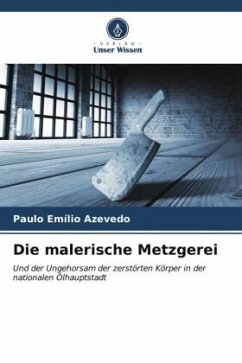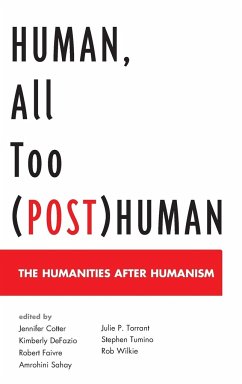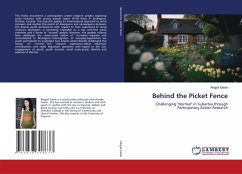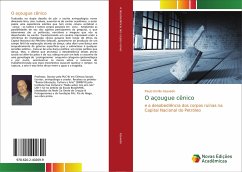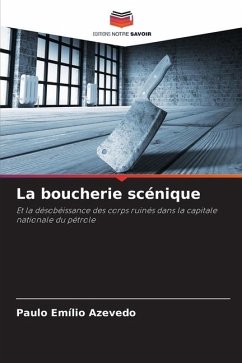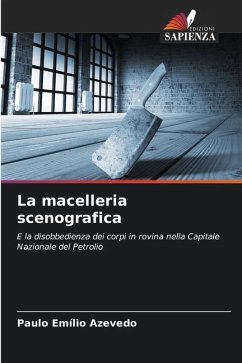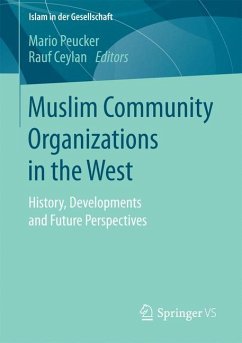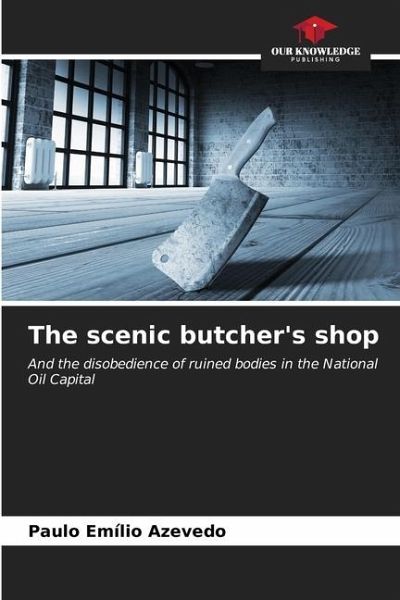
The scenic butcher's shop
And the disobedience of ruined bodies in the National Oil Capital
Versandkostenfrei!
Versandfertig in 6-10 Tagen
46,99 €
inkl. MwSt.

PAYBACK Punkte
23 °P sammeln!
Translated into the double challenge of putting anthropological writing into a lyrical dimension, without, however, absenting the academic character, the author exposes an aesthetic experience whose backbone is the 'body' - the many, many possible bodies on the 'scene'. Expanding the possibilities for the voice of the subjects taking part in the research, what we see are the powers, narratives and images that emerge in the writing. Characterising an unlikely scenario where the reference for scenic research would be far removed from the ethos of the National Oil Capital (Macaé), we are approac...
Translated into the double challenge of putting anthropological writing into a lyrical dimension, without, however, absenting the academic character, the author exposes an aesthetic experience whose backbone is the 'body' - the many, many possible bodies on the 'scene'. Expanding the possibilities for the voice of the subjects taking part in the research, what we see are the powers, narratives and images that emerge in the writing. Characterising an unlikely scenario where the reference for scenic research would be far removed from the ethos of the National Oil Capital (Macaé), we are approaching the production of a fertile field of exploration through dance; it is worth saying that it is a dance without a specific genre framework that would subject it to any aesthetic servitude - it is a political dance; a political body that dances. But the dilemma that runs through the disobedience of these social actors goes beyond the stage and the street; on the one hand, there is the outline of a genealogy of 'protagonism' as an epistemological category and, on the other, there are accentuated walls about the nature of the work/inclusion that these movements have dared to break down. If rupture, art is that fine line between jouissance and tragedy.



